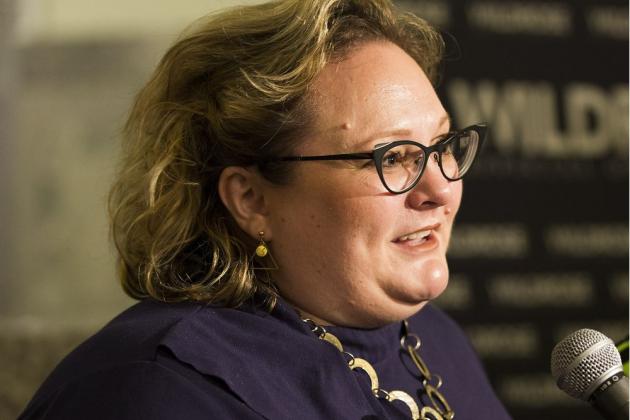
Every woman living in Alberta will have universal access to a new medical abortion therapy regardless of whether she has provincial health insurance, Alberta’s health minister said.
By Janet French | National Post
Every woman living in Alberta will have universal access to a new medical abortion therapy regardless of whether she has provincial health insurance, Alberta’s health minister says.
An announcement about how the Alberta government will cover the cost of mifegymiso — a pill-based alternative for early-stage abortions — is coming “very soon,” Health Minister Sarah Hoffman said Tuesday evening — possibly within weeks.
“Any women who live in Alberta — I don’t care where you live, I don’t actually care whether you’re yet a citizen — they have the right to access this,” Hoffman said during a panel discussion at the Chateau Lacombe Hotel about mifegymiso.
Refugees, university students covered by other provincial health plans, and other women should all have free access in the province, she said.
Mifegymiso, a two-drug combination that ends a pregnancy, was approved by Health Canada in July 2015, nearly 30 years after it was introduced in some European countries.
The first drug in the combination is RU-486, also called mifepristone, and was new to Canada.
After a manufacturing delay, it hit the Canadian market in January 2017, and is intended to replace one of the drugs currently used for medical abortions. It can be used up to seven weeks’ gestation. Advocates think it should be nine weeks.
Pro-choice advocates say substantial barriers remain to access to mifegymiso, including the price, which ranges from $300 to $450.
Governments in New Brunswick, Alberta, Ontario and Quebec have said they’ll cover the cost, but six provinces and three territories have yet to commit.
Calgary’s Kensington Clinic was the first Canadian clinic to offer mifegymiso. Executive director Celia Posyniak said it’s the only place she knows of in Alberta that offers it.
Used to its full potential, the new drug combination could be a game changer that makes abortions accessible to women who live far from surgical clinics, and save health-care costs by decreasing the number of abortion surgeries, Posyniak said Tuesday.
Although Health Canada is gradually relaxing restrictions on mifegymiso’s prescription and distribution, there are several barriers stopping women — especially in rural and remote areas — from accessing the therapy, said Sandeep Prasad, executive director of Action Canada for Sexual Health and Rights.
The cost should be covered up front — not reimbursed later — so cash doesn’t become a barrier to access, he said Tuesday.
Prasad came to Edmonton for the Council of the Federation meetings this week to lobby premiers to remove that financial hurdle. The premiers of Nova Scotia and P.E.I. were interested, he said. Prasad wants commitments before Canadian health ministers meet in November.
Once a target of pro-choice scorn for its abortion roadblocks, New Brunswick in early July became the first province to offer the therapy for free to women with a provincial health card.
Speaking before Tuesday’s panel, New Brunswick Premier Brian Gallant said equality is essential to that province’s economic progress, and has been a priority of his government.
“Access to essential medical services shouldn’t depend on a person’s postal code or income bracket,” Gallant said.